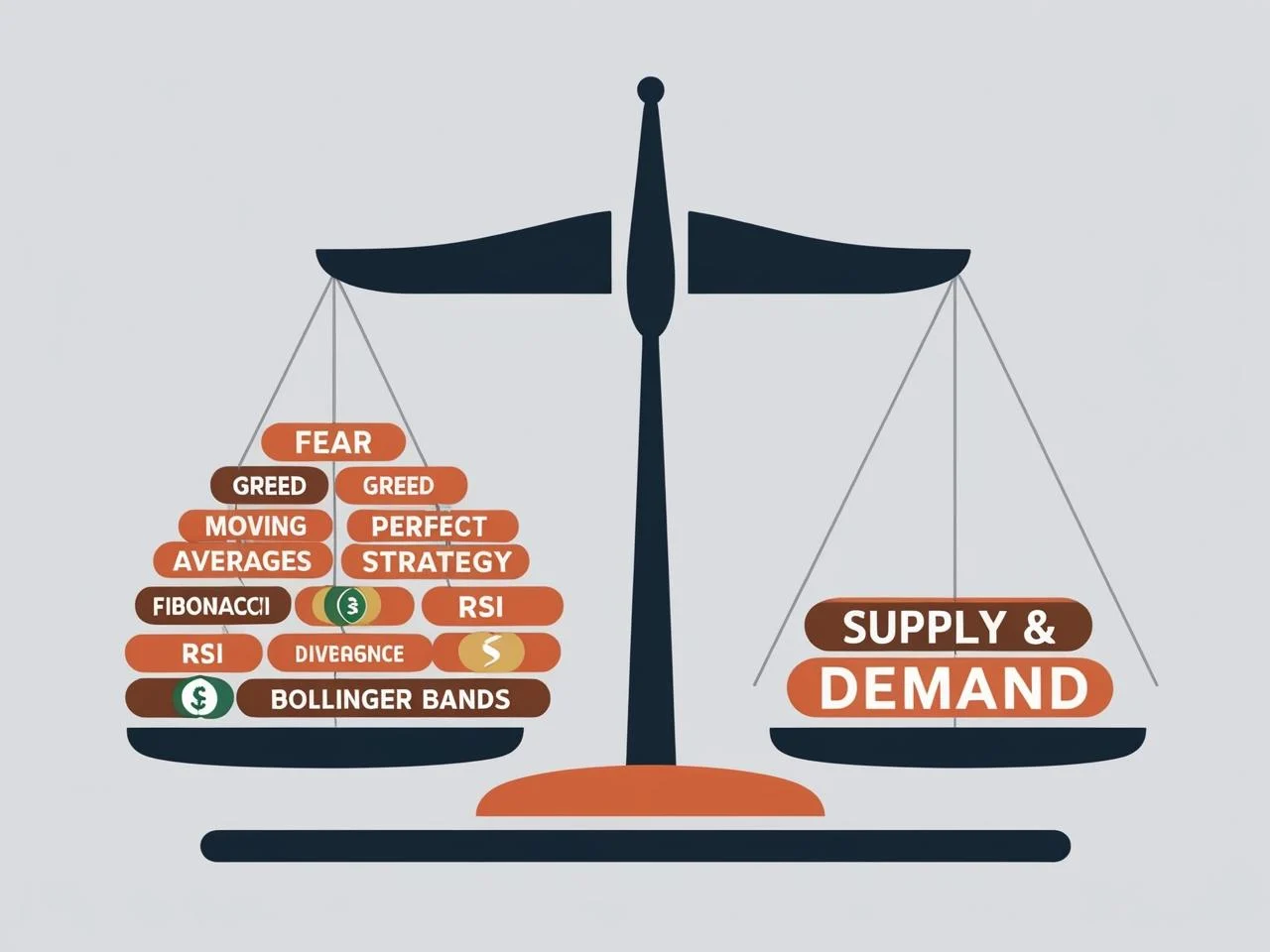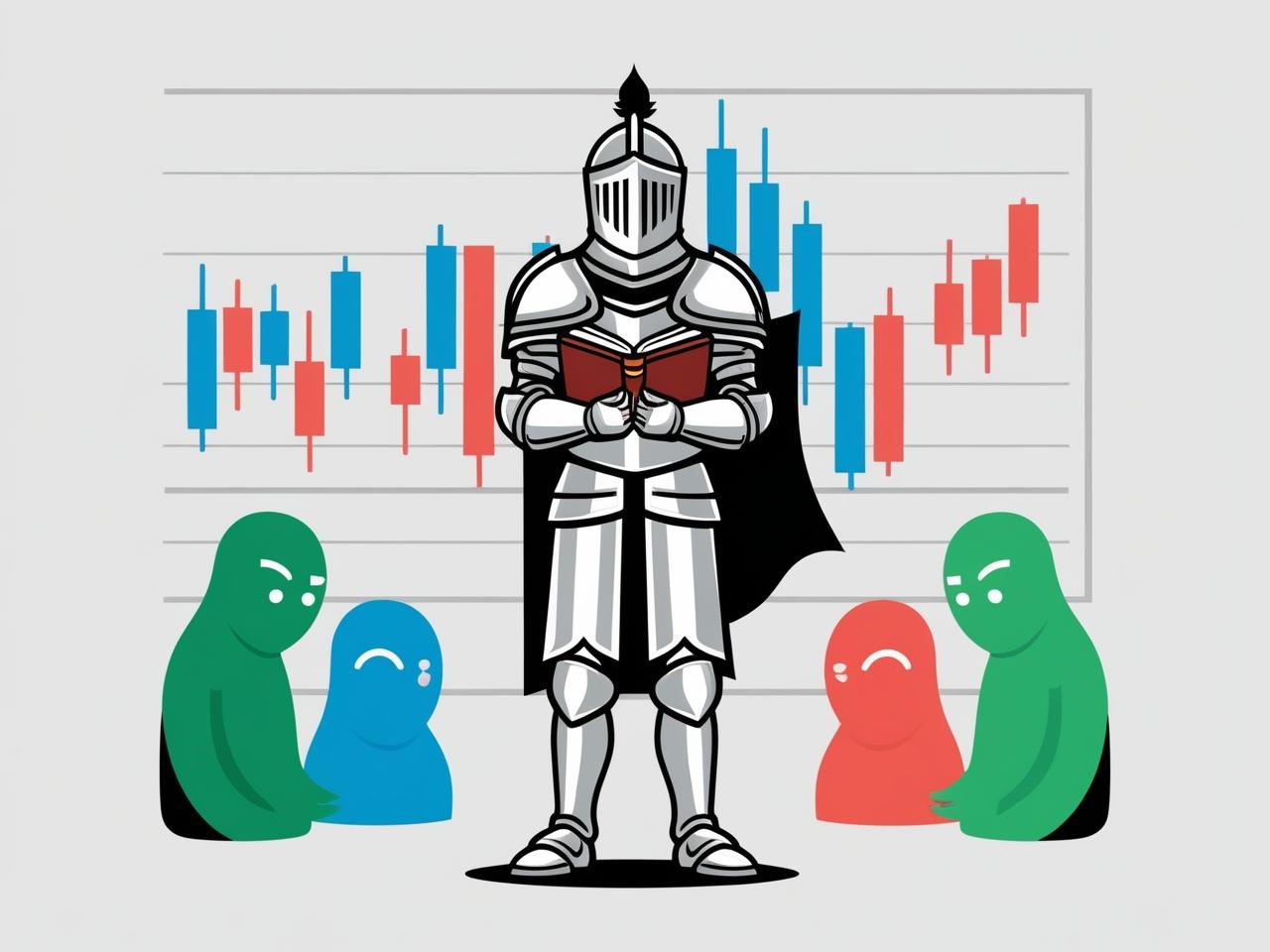How to Control Emotions in Trading

Have you ever found yourself overwhelmed by emotions during a trade, causing you to make impulsive decisions? You're not alone. Learning how to control these emotions is crucial to becoming a successful trader. Let's dive into some practical strategies to help you manage emotions effectively and trade with clarity.

Emotions are often the Achilles' heel of trading. Whether it's fear clouding your judgment, greed pushing you to overextend, or frustration leading to rash decisions, emotions can be a trader's worst enemy. In my trading career, I've learned that mastering the market isn't just about picking the right strategy or analyzing technical indicators—it's about understanding and managing your emotional responses. Today, I want to share insights on how you can learn to "turn off" those emotions while trading.
The Key: Knowledge and Logic

The cornerstone of emotional control in trading is knowledge. When you understand why the market moves a certain way and what influences price shifts, you begin to see beyond the day-to-day volatility. Instead of reacting emotionally to each fluctuation, you start to see the logic behind the movements. For example, if you understand that a sudden price drop is due to a scheduled economic announcement, you are less likely to panic and more likely to adjust your strategy accordingly. Whether you take a profit or a loss, it's that understanding—of the why—that helps you accept outcomes more rationally.
If you don't understand what's happening, the gap between your expectations and the reality of the market can become overwhelming. And it's in that gap where emotions like anxiety, fear, and frustration take hold. Knowledge fills that gap, turning emotion into reason. Simply put: the more you learn, the better you become at navigating market swings without getting swept up in them.
Emotional Trading: A Recipe for Disaster

Traders often make impulsive decisions based on emotions like fear or greed. For instance, fear might push you to exit a trade too soon, while greed might tempt you to chase an already overheated stock. This impulsiveness usually results in poor decision-making and undesirable outcomes.
Instead of searching for the "perfect" trading strategy or over-relying on technical indicators like moving averages, I advise focusing on the core principles of market behavior—namely, the forces of supply and demand. At the end of the day, prices move based on the actions of large market players and sentiment-driven movements. By understanding the behavior of these big players and aligning your trades accordingly, you gain an edge that cuts through the emotional noise.
How to Avoid Emotional Trading

Here are some practical steps to help you detach emotions from your trading activities:
-
Understand the Market Doesn't Care About You: The market has its own rhythm—it doesn't care about your timetable, desires, or personal goals. Accepting this fact helps you focus on what's actually happening rather than what you wish would happen.
-
Dedication and Hard Work: Successful trading requires more than luck. It demands consistent effort, research, and the willingness to learn from your mistakes. When you dedicate yourself to the process of becoming better, you naturally detach yourself from the emotional rollercoaster of individual wins and losses.
-
Focus on High-Probability Opportunities: Instead of chasing quick profits, focus on identifying trades that present high-probability setups based on solid market analysis. This approach removes a lot of the emotional baggage associated with trying to "get rich quick."
-
Have a Plan—And Stick to It: Creating a strong trading plan is essential, but it's sticking to it, especially during losses, that really tests a trader. A good trading plan should include clear entry and exit criteria, risk management rules, and a strategy for different market conditions. When you have a plan, you have a logical path to follow, even when the market feels chaotic. This makes it easier to ignore emotions and execute trades based on rational criteria.
-
Patience and Discipline: Patience is your secret weapon in trading. Impatience leads to emotional trades, while patience allows you to wait for the ideal conditions. Discipline complements patience—it ensures that once the right opportunity arises, you're prepared to execute without hesitation or second-guessing.
Knowledge is Emotional Armor

Turning off emotions while trading isn't about becoming robotic; it's about equipping yourself with the knowledge to understand what's driving the market and developing the discipline to respond logically rather than emotionally. By focusing on the underlying dynamics of market movements—like supply and demand—and practicing patience and dedication, you can minimize the influence of emotions and become a more effective trader. Remember, trading success isn't about perfection; it's about progress and staying consistent even when things get tough.
The more you know, the less you fear. And when fear is minimized, you're free to trade with clarity, logic, and confidence—traits that separate successful traders from those who never quite make it.


